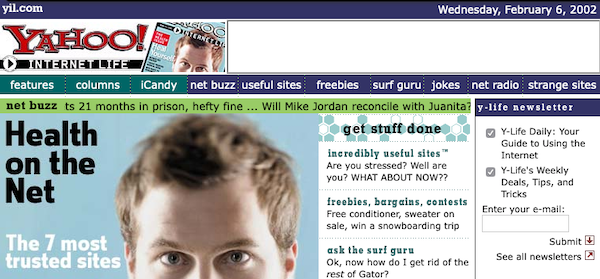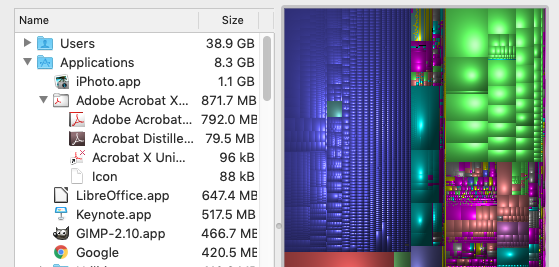Subtitled: What’s the Yahoo! Internet Life for this generation?
From a friend: A nice older lady asked for advice on keeping up with technology and the kids. Are there any resources you’d recommend that I can in turn recommend to her? Web pages, books, etc?
That’s super challenging because some of it depends on what level she is at already.
- Online or offline information?
- Is she in an existing community?
- What’s her level of understanding? (for some people you have to overcome some pretty serious “I am an idiot” intertia, for others, not so much)
If she just wants to learn about her own technology I often suggest dummies guides or a few “for seniors” books that her library might have. GFC Learn Free has some great online tutorials as does Lynda.com (now owned by LinkedIn, UGH but that’s just a you+me complaint I think, most people don’t care). Also, of course, check out if there are classes at the local library.
If she’s just curious “What’s new in tech this week” she could do worse than AARP. I thought they had a “what’s new in tech” podcast and I guess they don’t? They do have this landing page which would be good, some older people don’t like AARP (can’t blame them, some of their stuff is annoying) but if she’s already in that zone, it’s a good one.
One group that does an good job for a specific niche is AAA for road/travel stuff. Their magazine is nice and readable but will also talk about apps and tools for traveling and I’ve always appreciate that. Same thing with Kiplingers for money stuff. I don’t know why I assume older people want “magazines” but that is what my mom liked. Yahoo used to have a great magazine that would highlight new tech trends and I think we all miss it. Wired is really not it and I don’t think there’s another one that does what the Yahoo mag did.




